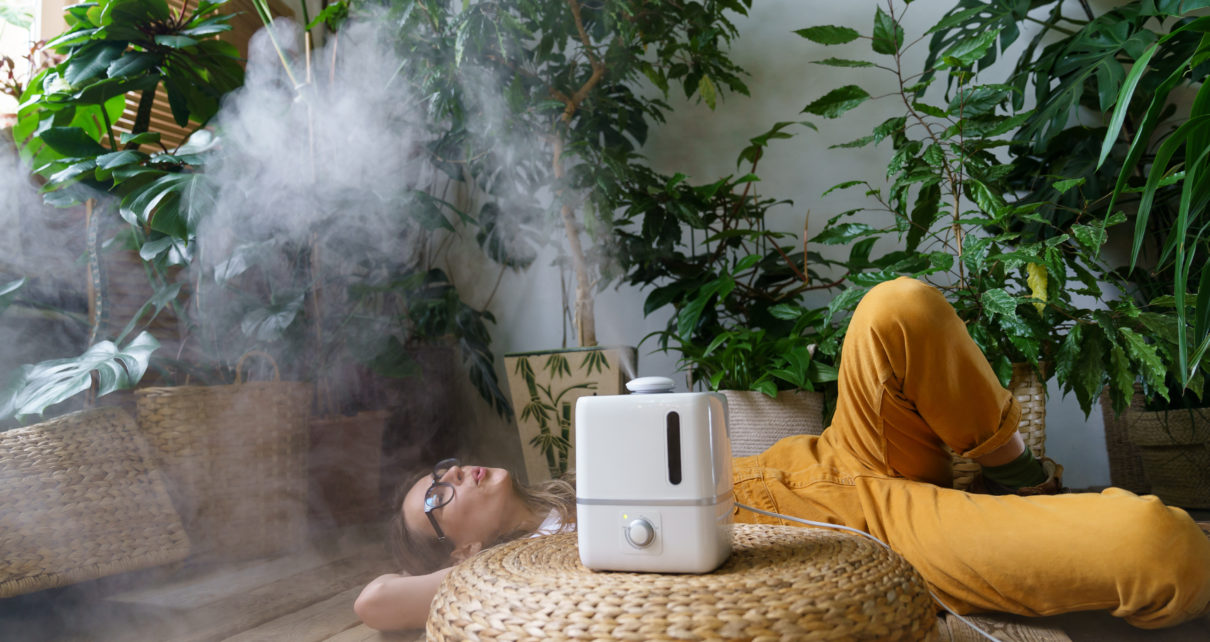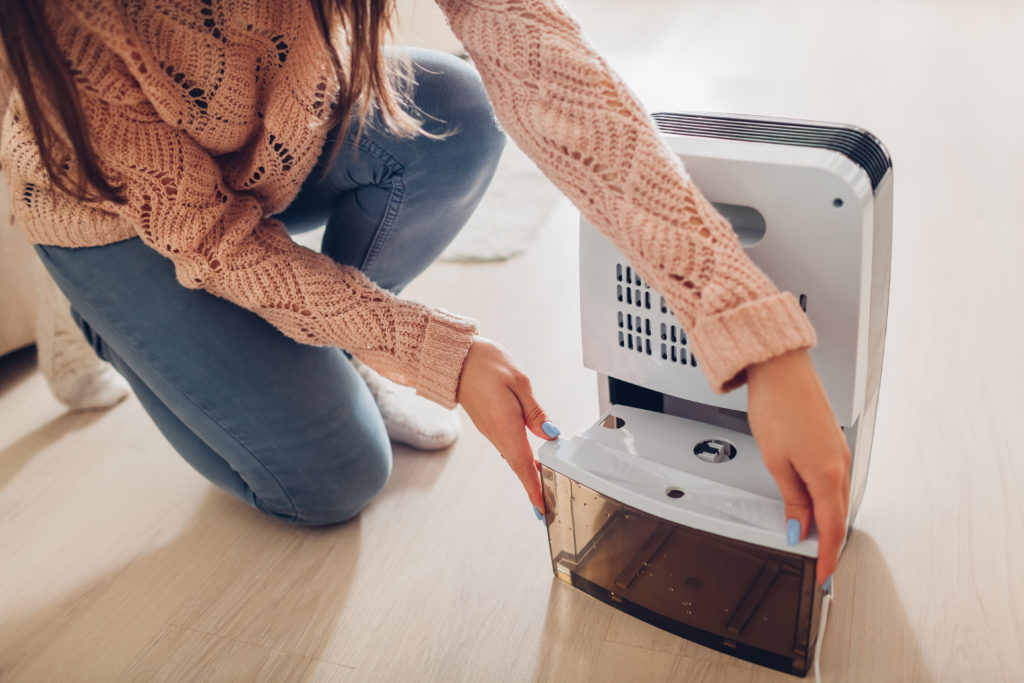
Humidifiers are easy to use and they’re generally fairly affordable. They come in a variety of sizes and utilize different technologies to achieve their purpose. With so many options available, it’s important to take your time making a selection. It’s also important to know how to use a humidifier and maintain the unit properly.
Low humidity can cause issues with dry skin, chapped lips, and allergies. If you’re concerned about the humidity level in your home, adding a humidifier might help. Today we’ll explore how a humidifier works and who can benefit from using one. We’ll also talk about how to clean and maintain a humidifier and how to preserve its longevity.
What Does a Humidifier Do?
A humidifier is simply a device that releases moisture into the air. In other words, it increases the humidity in your home. More specifically, the relative humidity.
The term humidity refers to the amount of moisture in the air while relative humidity refers to the current moisture level against the highest possible humidity. The amount of moisture the air can carry depends on the temperature. Lower temperatures actually result in higher relative humidity because the air’s capacity to hold moisture decreases.
How To Use a Humidifier
A humidifier can work in different ways and can produce either warm or cool mist. Evaporative humidifiers and ultrasonic humidifiers release cool mist while vaporizers release warm mist. Because vaporizers utilize heat, they’re not an ideal choice for nurseries and children’s bedrooms. Cool mist humidifiers are safer for children and they generally run more quietly.
Some humidifiers do more than simply release vapor – they also measure the humidity in your home. This enables you to adjust the mist output accordingly and some models may even make those adjustments automatically.
Who Should Get a Humidifier?
Anyone who has low humidity in their home could benefit from a humidifier. People who live in cold or arid climates should definitely consider it and even those who live in temperate climates but use central heating in winter and air conditioning in summer.
Here are some of the signs you could benefit from a humidifier:
- You wake up feeling congested
- You have a difficult time breathing during the night
- You have dry skin and cracked lips
- You experience symptoms of asthma or allergies
- You get frequent nosebleeds
- Your throat is scratchy and your eyes itchy
You may not need a humidifier if the humidity in your home is already within the ideal range, between 30% and 50%. Increasing the humidity too much could turn your home into a breeding ground for bacteria, fungi, and other germs. It can also damage furniture and flooring. In some cases, it may even worsen symptoms of allergies, asthma, and other respiratory conditions. To avoid this, you’ll need one of the best humidifiers for allergies.
Tips for Cleaning and Maintenance
Humidifiers can be helpful in several ways but it’s important to keep your humidifier clean and properly maintained. If you don’t keep the humidifier clean it can harbor bacteria and mold which will then be released into the air in your home. Depending what type of water you use in the humidifier, it may also accumulate mineral deposits that could impede function.

Here are some tips for cleaning and maintaining your humidifier:
- Unplug your humidifier before filling or cleaning it.
- Check the humidifier’s filter and cartridges regularly and change them when needed based on the manufacturer’s instructions.
- Empty and rinse the tank on a daily basis then let it dry completely before use.
- Once a week, remove mineral buildup with vinegar or a 10% bleach solution then rinse the tank very well.
- Consider using distilled water in your humidifier – it contains fewer minerals.
- If you notice mold or scale, rinse the tank with a vinegar or hydrogen peroxide solution.
- Keep interior doors open during use to prevent over-humidifying.
Again, one of the most important aspects of humidifier maintenance is monitoring the humidity level in your home to prevent it from going too high. If your humidifier doesn’t automatically monitor humidity and adjust automatically, consider buying a hygrometer to keep an eye on humidity levels yourself.
How to Preserve the Longevity of a Humidifier
Regular maintenance is the best way to preserve the life of your humidifier. Before you start using it, read the manufacturer’s instructions so you know how to use it properly. Using a humidifier incorrectly could impede its function and cause it to break down sooner. The instructions will also tell you how often you’ll need to replace any filters.
Clean the intake on your humidifier frequently to remove hard water mineral deposits that might clog it. This may be required less frequently if you have a water softener in your home or you use distilled water in the tank. Keep in mind, however, that using bottled water can become very expensive very quickly if you use the humidifier everyday.
How To Use a Humidifier After Storage
If you want to store the humidifier for a while, do a thorough cleaning first and let it dry completely. It’s also wise to change the filter before storing the unit so it’s ready to go immediately the next time.
Finally, make sure to keep the filter wet when the humidifier is in regular use. Most humidifiers have top-filled tanks so the filter is placed vertically in the unit. Preventing the filter from drying out can increase the longevity of the unit. You may also want to turn the filter over each time you fill the tank to rehydrate the top portion.
Bottom Line on How To Use a Humidifier
If you’re considering a humidifier for your home, take the time to think about your needs and choose the model that suits them best. Once you’ve chosen the right humidifier, it’s essential to use it safely and maintain it properly.
With proper care and regular maintenance, a quality humidifier can last for years. Follow the tips above to preserve the longevity of your humidifier.
